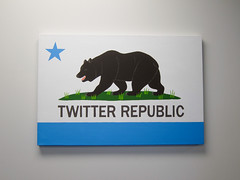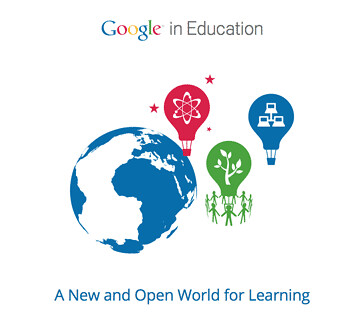The ability to curate well is increasingly more desirable and necessary technology leadership and teaching skill. Despite their requisite teaching and learning value, trade materials found at teacher stores and other static 'set in stone' print materials designed to be photocopied or replaced once used won't be able to hold up to the nearly unbelievable volumes of immediately available and up to the minute online teaching and learning resources available in different forms online. This would be very difficult to debate, and perhaps a statement of the obvious. The fact that there are so many online resources available is irrelevant if educators aren't skilled at retrieving them and making good use of them in a teaching and learning context. In order for school leaders to model effective 'cur-educ-ation' skills, they will have to develop some of their own first.
curate[n. kyoo r-it; v. kyoo-reyt, kyoo r-eyt] verb (used with object), curated, curating.
- to take charge of (a museum) or organize (an art exhibit)
- to pull together, sift through, and select for presentation, as music or website content
curate. (n.d.). Dictionary.com Unabridged. Retrieved August 14, 2014, from Dictionary.com website: http://dictionary.reference.com/browse/curateI know finding the 'good' stuff on the web can sometimes feel like trying to get a cup of water from Niagara Falls. This is why any tool that helps us filter web content efficiently is a good one. I continue learning how to curate web resources more effectively and efficiently. Everyone is different and will have their preferred sites, tools, apps, and online resources in their personal online toolbox, but I thought I would share three that have been most valuable to me.
I have been using Twitter as a curating tool since 2009... something that surprised me today when I checked how long it has actually been. Like lots of other fun stuff I do, the time I've spent making effective use of Twitter as a professional curating tool has gone by very quickly. I have been able to curate a list of thousands of engaged people with a vested interest in supporting high-quality teaching and learning, and the list of valuable online tools, teaching tips, sage advice, and great stories about teaching and learning I have collected has become an extremely worthwhile and comprehensive set of 'go to' tools for me. I strongly encourage any school leader no matter the context to engage in Twitter as a way to curate professional material and build a supportive personal learning network of others who feel passionate about teaching and learning.
Twitter as a professional teaching and learning tool is available to you totally free. It's current (up to the second), full of interesting content, and relatively easy to use... but where do you file all this great stuff you ask. For me, Diigo has been the primary cloud based tool to organize and catalog all of the great stuff I get from Twitter and other places (but mostly Twitter.) Diigo is another free, online pretty easy to use tool specifically designed for curating anything you find online and feel like you want to have quick access to literally anywhere you have an internet connection. It's a simple matter of assigning tags to your online content so they are easily searched and found later when you need them... again, from anywhere you have an internet connection. There is no need to bookmark anything anymore in the cloud. In the Diigo cloud you just give the site you've found a tag and search it when you need it. You don't even have to go directly to their site. Install the handy 'diigolet' from the website and one click takes you to your library. Diigo also offers an educator account option that allows you to bring your students into the fold with a 'classroom account', a great service for 1 to 1 classrooms and teachers who want to foster a bilateral, open online teaching and learning environment.
The last item I want to share as a most valuable curating tool, or set of tools for me in my teaching and technology leadership role is the suite of apps within Google Apps for Education (GAFE). My school began using a specific Google domain two years ago, and my school District will be in full implementation this fall after a year of beta testing and professional development. Google has revolutionized the way I teach and communicate with colleagues, parents, students, and others outside the school domain. GAFE isn't available to everyone. An account (domain-specific to your school or District) is required, but it's well worth the effort to lobby for acquiring one so you can begin exploring the evolutionary aspect of Google-style teaching and learning. So many of the Google tools provide cutting-edge means to curate online material effectively... Gmail, Docs, Google Sites, and others allow solid platforms to curate, share and interact with others in really easy-to-use ways. It's very exciting being part of this evolution, and if you have a chance to attend a GAFE Summit, take it... you will be overwhelmed (in a good way) by the volume of outstanding ways you can implement Google in your classroom and school.
Twitter, Diigo, and Google Apps for Education are my top three online tools that enable me to curate engaging and purposeful online teaching and learning experiences for myself, colleagues, students, and parents. I wanted to share these as examples of really good online curating tools for school leaders. Looking at curating online resources as a specific and trainable skill in our schools will frame a context for school leaders to become supporters of others who will look to us for guidance as they try to improve their online teaching and learning experience.





No comments:
Post a Comment